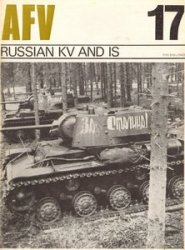We have no examples of the work of the continental bards, apart perhaps from the Chamalieres and comparable inscriptions; but the account given by Athenaeus of the bard and Louernius the renowned Arvernian chieftain indicates that the role of the bard was the same in Gaul as it was to be in the British Isles (Tierney i960: 24). Louernius made a great feast in an enclosure of vast size which he had prepared for the purpose. This was duly provisioned with huge vats of liquid and cauldrons of food, and the feast was served for many days to all who wished to partake of it. When the time came to end the feast, and Louernius was preparing to leave, a poet ran up to him singing a praise-poem in honour of Louernius and bewailing his own late arrival. Moved by this, and acting in accordance with accepted ritual, the chieftain had a bag of gold brought to him and threw it to the poet. In return, the poet sang another praise-poem, even more fulsome than the first, stating that even the tracks made by the chariot of Louernius gave ‘gold and largesse to mankind’.
It is fitting to consider the rituals of the poets in the context of this chapter. As J. E. Caerwyn Williams so appositely comments in his Hallstatt Lecture (1991, Machynlleth);
I have emphasized the authority and power of the Druids because the poets were a branch of the druidic order, and because the shadow of the Druids lay heavily on the poets of both Ireland and Wales even at a much later date when both countries had rejected paganism.
{Y Bardd Celtaidd, ‘The Celtic Bard’: 7)
Prophets as indeed they were, and at all periods of recorded time, there can be little doubt that the druids were primarily priests of the Celtic religious cults. I believe that the great Celtic scholar J. G. MacCulloch, himself a churchman, was correct in stating: ‘there is no reason to believe that Druids did not exist wherever there were Celts’ (MacCulloch 1911: 298).
The Celts also had priests called gutuatri, whose functions would appear to have stemmed from the druids. The word seems to be derived from "‘‘ghutu-pater, ‘Father (master) of the Invocation (to god)’. As Professor Caerwyn Williams suggests (1984; 23), ‘Bardos means “the singer of praise (?to men)”, and it seems from the above that he had a priestly counterpart, “the singer of praise (to god)”.’ It is interesting to note that the medieval Welsh pencerdd, ‘chief poet’, must sing one song to God and another to the king. The Celtic poet exercised magical powers, as did the fili and the druid. He regarded himself as a shaman or a magician. He used words not only to praise those qualities he believed to be essential to a ruler, but he called them into existence in him. To quote the much-quoted words of the thirteenth-century Welsh poet, Phylip Brydydd, to his princely patron, gwneuthum it glod, ‘I made fame for thee’. This indicates well the complex nature of Celtic society, where contract and offering and giving in return for privilege were all closely ordered and understood. We can imagine that the druids, by their chanting and by their rites of sacrifice and deposition, not only brought forth the desired results and benefits from the gods, they actually called them into existence, and ‘made fame’ for the deities by immortalizing them in words.
The most important of the tripartite learned orders - which could themselves clearly be divided within the group - were, of course, the druids. They were in charge of religion and its attendant ritual, and no matter what assistance they may have had from the other orders, the vates, bards and parasites - themselves an offshoot from the bardic order - the ability to communicate directly with the gods, and the power to know and interpret their will for the people, rested with the druids alone. They clearly correspond to the Brahmins of ancient India and the Flamines of early Rome; and all three must be seen as the representatives of and descendants from the ancient Indo-European priestly caste. As MacCulloch so pertinently comments: ‘Druidism was not a formal system outside Celtic religion. It covered the whole ground of Celtic religion; in other words, it was that religion itself’ (1911: 301).
Druidic teaching was oral. The Irish druids ‘sang over’ (for-cain, a word which can also mean ‘prophesy, predict’) their pupils; the pupils repeated the lesson In chorus. In the Irish texts there Is an occasional reference to druidic books (McGrath 1979; 29f.). A script known as Ogam came Into use about the fourth century AD, based on the Latin alphabet and consisting of strokes or notches which were cut into wood, bone or stone (McManus 1991: iff.)- It seems highly likely that it originated as a system of magical symbols, and some scholars have maintained that it originated as long ago as c.500 BC as a sign language used by the continental druids. This argument is based on the fact that the symbols are clumsy as written letters but are well suited to mobile fingers (McManus 1991: 8f.). The Irish god Ogma is credited with having invented this system of writing.
Oaths sworn before druids were regarded as sacred and binding. Oaths were sworn on many things, including the elements, which, if the oath were to be violated, would be expected to turn upon the guilty one and destroy him. The magical power of the pagan oath made it unacceptable to the early Christian church. A reference to pre-Christian oath-taking occurs in the sixth-century First Synod of Saint Patrick. This synod ordained that a Christian who swore before a druid m the pagan manner had to do a year’s penance (Kelly 1988: i98f.).
It Is of especially great interest to consider the text of the Chamalieres tablet. In 1971 a lead tablet with a Gaulish magico-religious text of some sixty words In Italic writing was found at the Source-des-Roches de Chamalieres, Puy-de-D6me, France. It has been dated to the early first century BC, an Important period for pagan Celtic religion and rites. It is in the nature of a defixio (meaning ‘bewitch’, ‘curse’), and is an important document for information on Celtic deities and magical formulae (Lejeune and Marichal 1977). The god Maponus is invoked as the Arvernian Maponus; and Lugus, the most widely venerated and Important of all the Celtic deities, would seem to be present in the context of an oath, which is a kind of magical restraint, and had great powers in the early Celtic world. Perhaps the most striking feature is the magical formula for swearing by a god which, in Ireland, occurs as tongu do dhia tonges mo thuath, ‘I swear by the god by whom my people swear’. The Old Irish word for oath is lugae, luige; and Sayers, In his important article on enchainment (1990), states; ‘More attractive is the hypothesis... that Old Irish lugae, luige, ‘oath’, and the theonym Lug are related, with the latter possibly a tutelary divinity of contractual bonds’ (1990: 234). There is a similar formula in Early Welsh, and the word for oath in Welsh is llw. In the Chamalieres defixio we are in the very presence of active druidic ritual, and we are also able to envisage some small fragment of the myth of the pan-Celtic god Lugus.




 World History
World History









